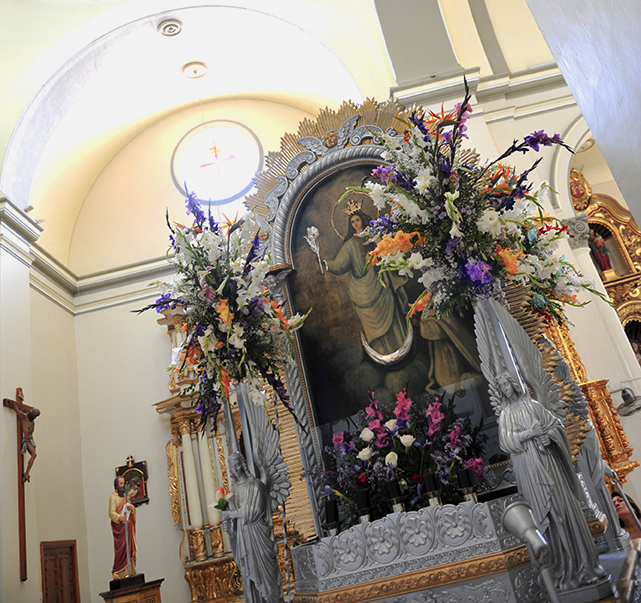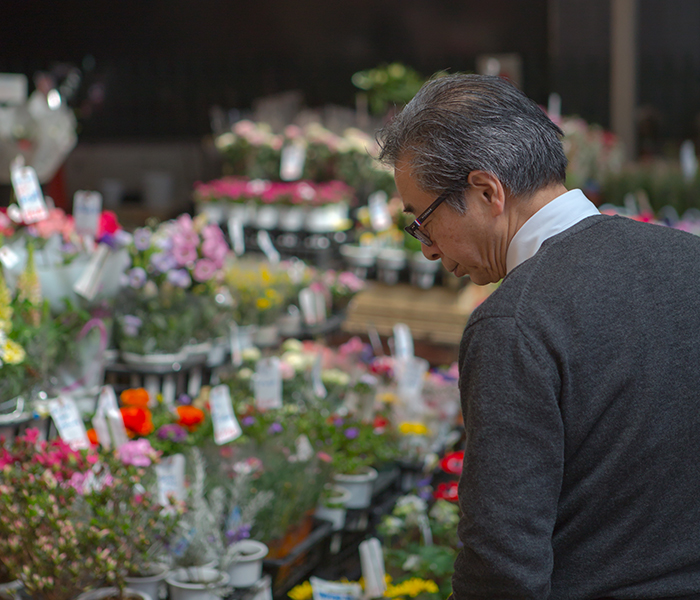
Missionary Life
The Art of Cross-Cultural Evangelism
July 25, 2017
by admin

If anyone should have been ready for Muslim ministry, it was Felicity*. She grew up in the Middle East and had discussed the Quran with Muslim friends since elementary school. When she moved to a new Muslim-majority country as a missionary, she thought she would have similar discussions.
There was just one problem:
“I’ve tried doing that with my neighbors, especially the ladies, and they have no idea what the Quran says.”
No matter how prepared you are, cross-cultural evangelism will always be full of surprises. That’s why we asked seasoned missionaries from four countries about the lessons they’ve learned over the years.
Although their host cultures and ministries vary, a few things didn’t change. Here’s what they told us.
Cross-Cultural Evangelism Takes Time
Before you do anything else, know that learning to evangelize in a consistent, effective way takes time — and you might be surprised at the way you spend it.
“If you don’t take the time to get the language down, it’ll be a handicap for the rest of the time you’re here,” says Dan Kuehl, TEAM missionary to France. And he isn’t kidding around.
Dan says it can take up to five years (three in language school, two in full-time ministry) before a missionary will confidently say, “I think God is starting to use me to reach French people.”
But the need for patience doesn’t end once you learn the language and culture.
In Japan, TEAM missionary Joel Kaufman says, “I do believe that I’ve gotta be willing to sow seeds over years, and maybe others will reap.” And often, those seeds don’t sprout “until God waters [them] with adversity.”
Successful cross-cultural evangelism often means growing in patience as hearts soften, relationships develop and fruit grows. Don’t let that scare you. You’re making an investment that will pay off for years to come.
Build Relationships to Build Trust
When it comes to showing people their need for Jesus, Craig Querfeld says, “It’s not theological constructs that you’re trying to break through. It’s life issues.”
The only way to discover those life issues is to build relationships. That isn’t always easy in the Peruvian city, where Craig and his wife, Sue, serve. The culture highly values appearances, so people don’t share baggage until they know they can trust you.
And if you think you can go halfway, Sue says to forget about it: “If I’m joining a … book club, or whatever it is, with the sole purpose of evangelizing, they’re going to see through it. … I need to be willing to be vulnerable to them, to befriend them whether they follow what I want them to follow or not.”
On the other hand, Joel Kaufman discovered he could be more systematic in Japan. He and a pastor went door to door, talking with people. Then they took notes on their conversations and marked where each person lived in a map book.
“I went to 10,000 houses and covered the city, and that map book is still being used by the elder and the pastor to this day. And they’ve got hundreds of friends,” Joel says.
Whatever the method, relationships will always be a vital part of building credibility and trust with people. So find what works in your culture and embrace it.
Be a Learner — in Ministry and Everyday Life

If you want to learn a new culture, adopt the locals’ schedules, see how they do things and engage with those around you. Photo by TEAM
As you learn what works in your culture, be ready to fail. In Japan, canvassing houses can make ministry a breeze. But in France, Dan says that every relationship starts with suspicion.
“We would never bake some brownies and bring it to our neighbor and say, ‘Here, I’m your new neighbor,’” Dan shares. “They would say, ‘What did you do to those brownies? … Are you trying to get rid of us?’”
Instead, Dan has learned to engage in a slow process of building trust through small interactions, which grows into meals at his house and conversations about God.
Some of these lessons are easier to learn than others. You may be able to find books and podcasts on the culture you’re visiting, or even talk to a missionary who has served there. However, like any other ministry, learning how to do cross-cultural evangelism in a new context means getting your hands dirty.
If you really want to learn a culture, the Querfelds say to adopt locals’ schedules. See how they do things. Even take vacations in your host country so you learn to relax where you are.
In this process, Sue says, you also build relationships by giving locals the chance to be your advisors. After all, you may know about Jesus, but they know where to find groceries and buy shoes for your kids. Asking for help
Find the Culture’s Open Doors
As you learn the local culture, you’ll also begin to find the open doors. Felicity says it’s surprising to see what aspects of truth people already know — even if Satan has twisted them.
Felicity quickly realized that talking apologetics wouldn’t work in her new country. (“It’s not even interesting to them.”) But women in this deeply religious culture welcome her prayers in Jesus’ name.
After she prays, “they’ll come back to me and say, ‘Thank you. God answered that prayer that you prayed. Please, will you pray for me again?’”
In France, people deeply value sharing long meals together. So, Dan and his wife, Margaret, started inviting people over for four-course meals. “It’s great because that’s when people let down their guards [and] ask their questions,” Dan says.
And as people ask questions, you can start telling them the story of Jesus.
Engage the Culture through Stories

Evangelism is a seed-planting work. In Japan, TEAM missionary Joel finds that one of the best ways to plant seeds is to tell the story of the Gospel rather than making apologetic arguments. Photo by TEAM
Cross-cultural evangelism often means changing your strategy. Like Felicity, Joel came to his host country thinking he would win people with apologetics. But Japanese ideas are so far removed from Christianity that most people struggled to understand what he was even talking about.
That’s why Joel turned to storytelling.
After all, he says, “Why would we expect people to learn the abstract truth when we ourselves learn it in Sunday school and just hearing Bible stories?”
Through stories, Joel finds he can naturally teach truths about God’s character. And when people want to learn more, he gives them a Japanese comic book of the Gospel accounts.
For her part, Felicity says she’s not a good storyteller, but she learned a method of telling stories while drawing matching henna tattoos. The women in her neighborhood love the designs and eagerly share the stories with friends and family. And until the tattoo fades, they have a constant reminder of the Gospel.
Disciple While You Evangelize — and Vice Versa
For many missionaries, evangelism and discipleship aren’t distinct phases.
“It’s not like praying a prayer and then, the next day, there’s a change,” Felicity says of Muslims who come to Christ. “It’s really like a whole change of mindset that happens slowly, slowly, slowly as they’re studying [the Bible].”
So, Felicity doesn’t wait for a distinct moment to start discipling friends. She teaches them how to live a Christ-like life now and watches as they gradually change and embrace Jesus.
On the flip side, Craig says it’s vital that new believers continue to have the Gospel proclaimed to them.
Many Peruvians grow up as nominal Catholics and don’t truly understand that the Gospel is more than a prayer you say or a box you check. So, Craig and Sue keep preaching the Gospel, even when someone says they believe, even when they’ve been baptized. And when the couple starts seeing consistent change, a willingness to serve, humility and fruit of the Spirit, they celebrate.
Trust God with Your Cross-Cultural Ministry
Whatever methods you use, there is one final lesson every missionary agreed on: You have to trust God to do the work.
Dan says he’s seen talented, gifted missionaries lose their ministries because they were taken in by spiritual pride or were disappointed when results didn’t come as quickly as they did in America. But Dan reminds prospective missionaries, “Christ said, ‘I will build a church,” and I think we just have to remind ourselves — constantly — that we’re only useful if we’re in that position of total dependency on Him.”
Your meticulous plans can easily fall apart, but God never will. So, these missionaries say, ask Him to lead you to the right people. Pray for wisdom in your conversations. Trust Him to work in people’s hearts. Know that cross-cultural evangelism is a journey.
It won’t always be easy, but God is faithful. And if you can remember that, you’ve taken a huge step toward effective evangelism in any culture.

